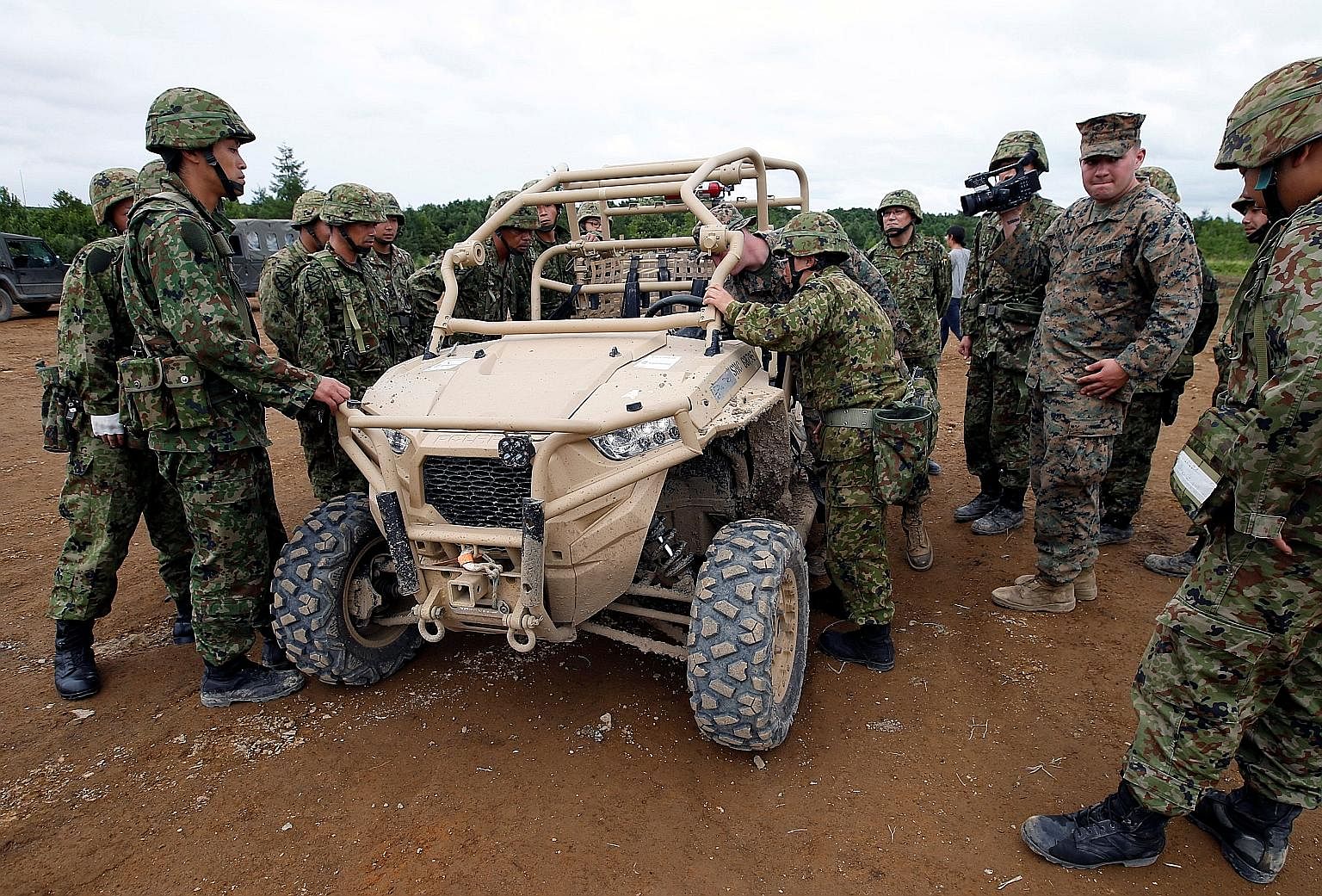If there were any lingering doubts over the United States' commitment to Japan's defence, these were put to bed at this week's Japan-US "two-plus-two" talks.
This will be guaranteed through its full arsenal of capabilities, including US nuclear forces, a joint statement said.
Secretary of State Rex Tillerson said after the talks in Washington on Thursday (yesterday, Singapore time): "The US will honour our treaty agreements with Japan without reservation, in times of peace or in the face of conflict."
The talks involved Mr Tillerson, US Defence Secretary James Mattis and their Japanese counterparts, Mr Taro Kono and Mr Itsunori Onodera. They pledged closer ties to cope with myriad issues, from North Korea to Chinese assertiveness in the East and South China seas.
Mr Tsuneo Watanabe, senior fellow at the Sasakawa Peace Foundation, said it was crucial for the two allies to get off on the right foot after the recent Cabinet reshuffle in Japan.
Analysts said the leaders made progress on talks on boosting security ties. Research director William Heidlage of Washington public policy consultancy BowerGroupAsia told The Straits Times both sides had "plausibly advanced the conversation over how to expand our bilateral security relationship, given strategic challenges in Asia and political realities in Washington".
For one thing, they confirmed the overall level of Japan's support for the cost of stationing US troops on its territory will be "maintained roughly" at the level of Japan's fiscal year 2015, when Tokyo paid about 86.4 per cent of the total cost, or 191 billion yen (S$2.4 billion).

This was a point of contention in the US presidential campaign last year, when then candidate and now President Donald Trump accused Japan of not paying its fair share of the arrangement.
One thing that the alliance has to work out is operational issues, said Dr Narushige Michishita from the National Graduate Institute for Policy Studies. "The US and Japan have not really agreed on how to operate together in a military contingency and so this must be planned in detail," he said.
What emerged from the talks too was how Japan will play a bigger role in its defence, said analysts.
Ms Shihoko Goto, senior associate for North-east Asia at the Woodrow Wilson Centre's Asia Programme in Washington, said: "What is clear is that not only is Japan more prepared to take on a proactive role in its defence, but (there is) also affirmation that the US would... indeed welcome a more defence-focused Japan in the region."
Dr Masashi Nishihara, president of the Research Institute for Peace and Security in Tokyo, said the "expanded role" as promised by Japan in areas such as intelligence, surveillance and reconnaissance is significant. This follows its 2015 reinterpretation of the pacifist Constitution under the banner of "proactive contributions to peace".
Japan is looking to increase its defence spending at a faster pace from fiscal 2019 than during the current five-year period, the Nikkei Asian Review reported yesterday.
Defence spending has been growing at an annual rate of 0.8 per cent on average. Japan's annual Defence White Paper last week showed that defence spending made up 1 per cent of its gross domestic product in fiscal 2015.
This is lower than the US (3.4 per cent), China (1.3 per cent) and South Korea (2.4 per cent), it said.
Tokyo intends to spend more on defence equipment to counter the Pyongyang threat and possibly acquire offensive weapons to allow it to make a pre-emptive strike on North Korean bases.
Dr Nishihara said Japan must first "have a much stronger retaliatory capability, in case of the opponent's strong retaliation".

